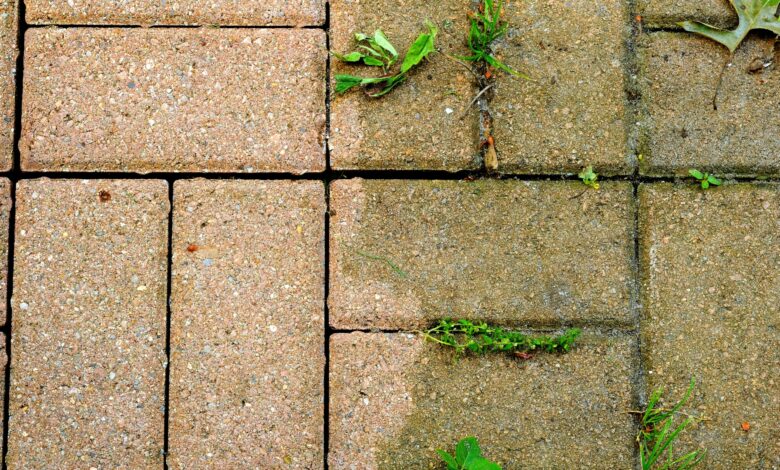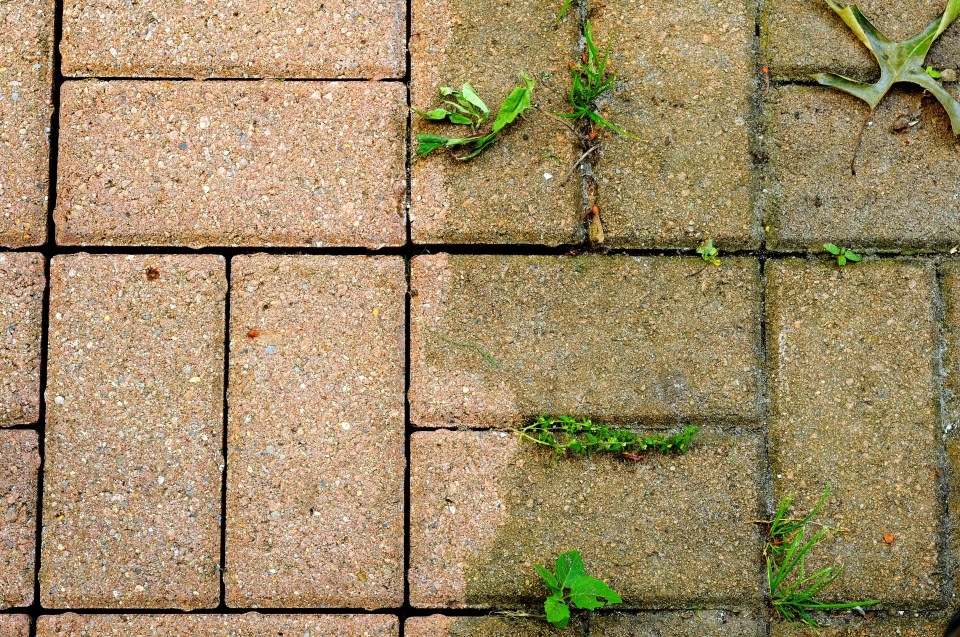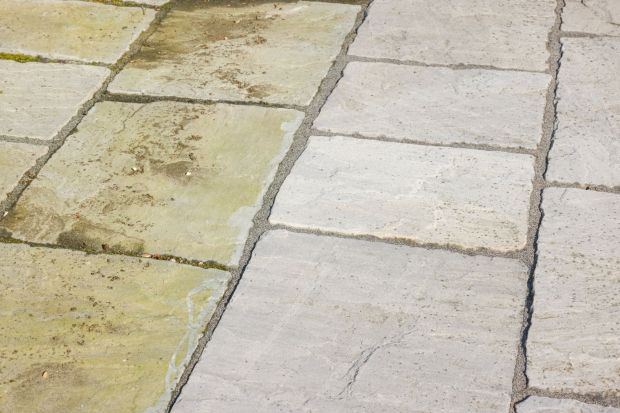Why You Should NEVER Use a Pressure Washer to Clean Your Patio



Now that many of our summer bloomers are starting to die off, this is the ideal time to pay attention to our paving.
Removing moss and dirt from our pavers may seem simple, but Steven Bell, Director of Paving Shopper, shares some crucial insights.
Bell highlights some common cleaning practices that can inadvertently damage your sidewalks, including reasons why you should avoid pressure washing…
Be careful with high-pressure cleaners
While pressure washers can be effective, Bell advises caution.
Improper use can cause significant damage to pavers. He explains that while most pavers are sturdy, excessive pressure or frequent use can lead to surface imperfections such as pitting and cracking.
Bell recommends keeping the spray nozzle at least 12 inches from the pavement and avoiding the highest pressure settings to prevent damage.
Avoid strong acids
Bell warns against using strong acids for cleaning, as these can damage the quality of natural paving over time.
This can lead to cracking, discoloration, and hard-to-remove stains. Instead, he suggests using milder acids, such as lemon juice or vinegar diluted in water, which can effectively remove stains without damaging the stone.
Use soft brushes
The choice of brush is crucial when cleaning paving stones. Bell advises against hard, stiff brushes or wire brushes, as these can damage the surface of the stones.
He advises using softer brushes to avoid scratches and damage to the natural stone.
Avoid salts during winter
It may seem like a good idea to use salt in the winter to keep the area free of ice, but Bell warns that salt can be erosive, leading to surface degradation and cracks in the paving stones.
How to repair broken patio tiles

The paving specialists at Simply Paving told Fabulous how to repair broken patio tiles without too much hassle.
The experts advised: “If you have a loose paving slab, it’s unlikely you’ll be able to lift it straight up by hand. Instead, you’ll likely need a hammer and chisel to pry the paving loose from your patio.
To remove loose tiles without damaging your tiles, carefully chisel away the mortar around the tile with the chisel and rubber mallet until the tile is completely loose.
“Then slide the shovel into the gap created by the mortar and pry the tile loose from the patio.
“As you lift the shovel, place a short piece of wood under the shovel. This will act as a lever, making it easier to do the job and protecting the slab underneath.
“When the paving starts to give, place the cylindrical wood underneath and roll the slab out of the patio.”
He suggests using sand or salt-free de-icing agents as milder alternatives that provide traction without damaging the stone.
Bell’s insights emphasize the importance of using the right tools and materials to maintain the beauty and longevity of your patio paving.
He emphasizes that while some methods may appear effective, they can cause long-term damage, underscoring the need for careful and informed maintenance practices.





